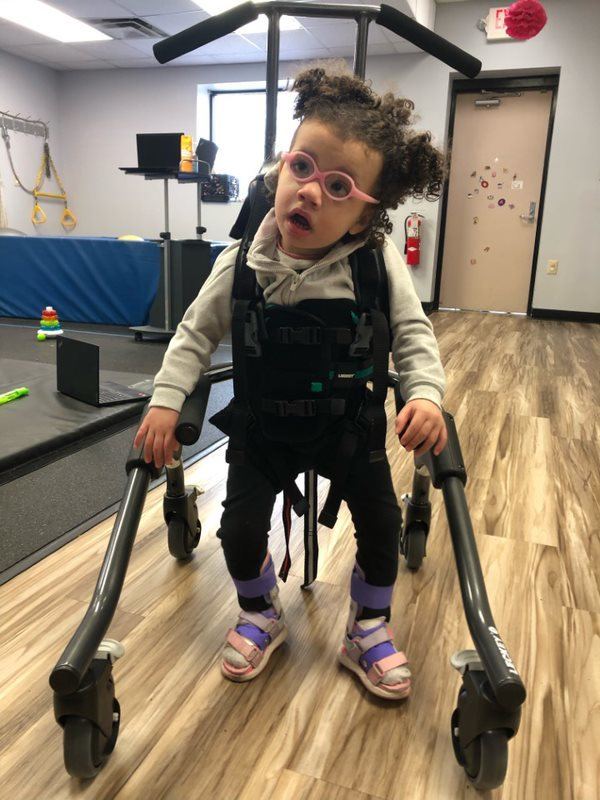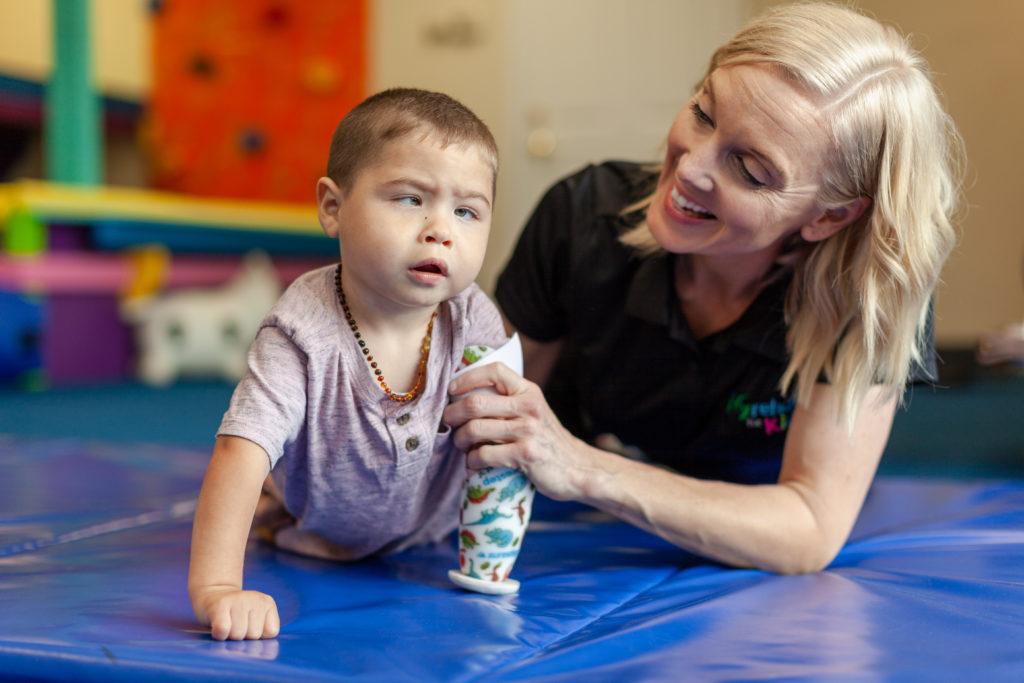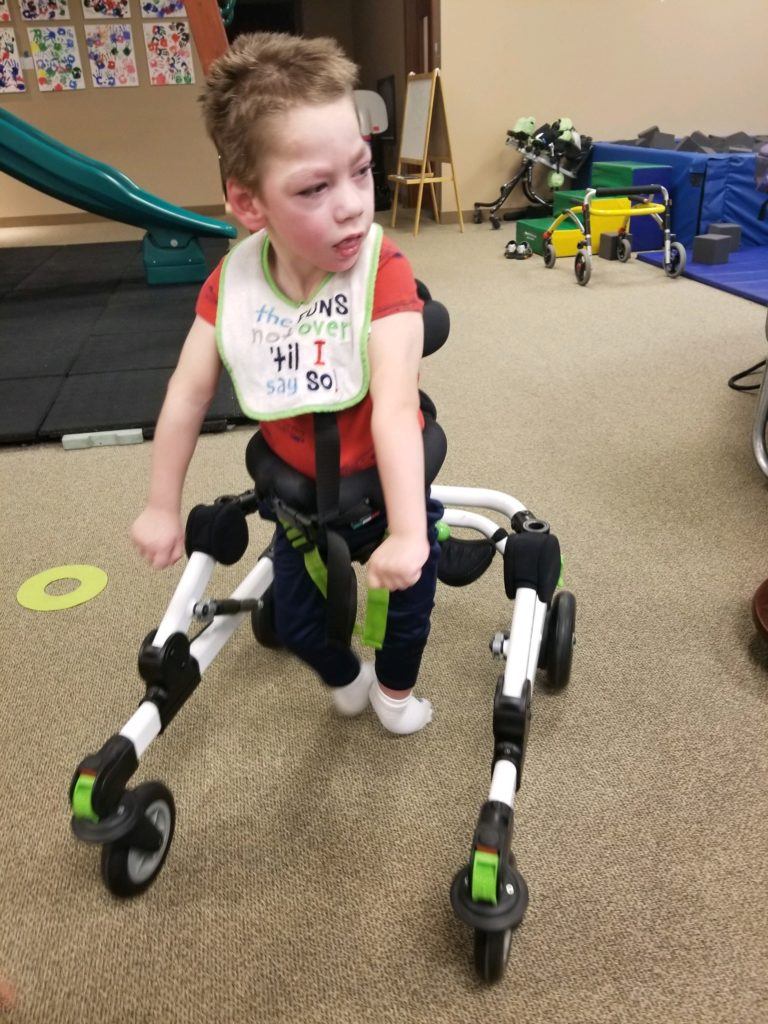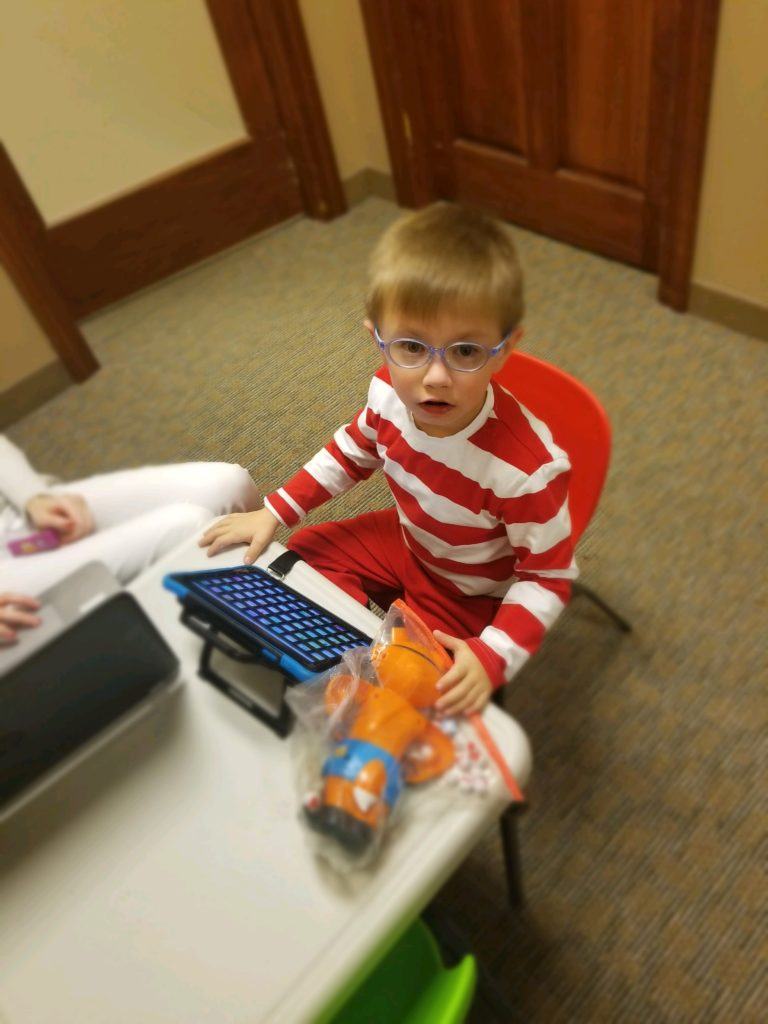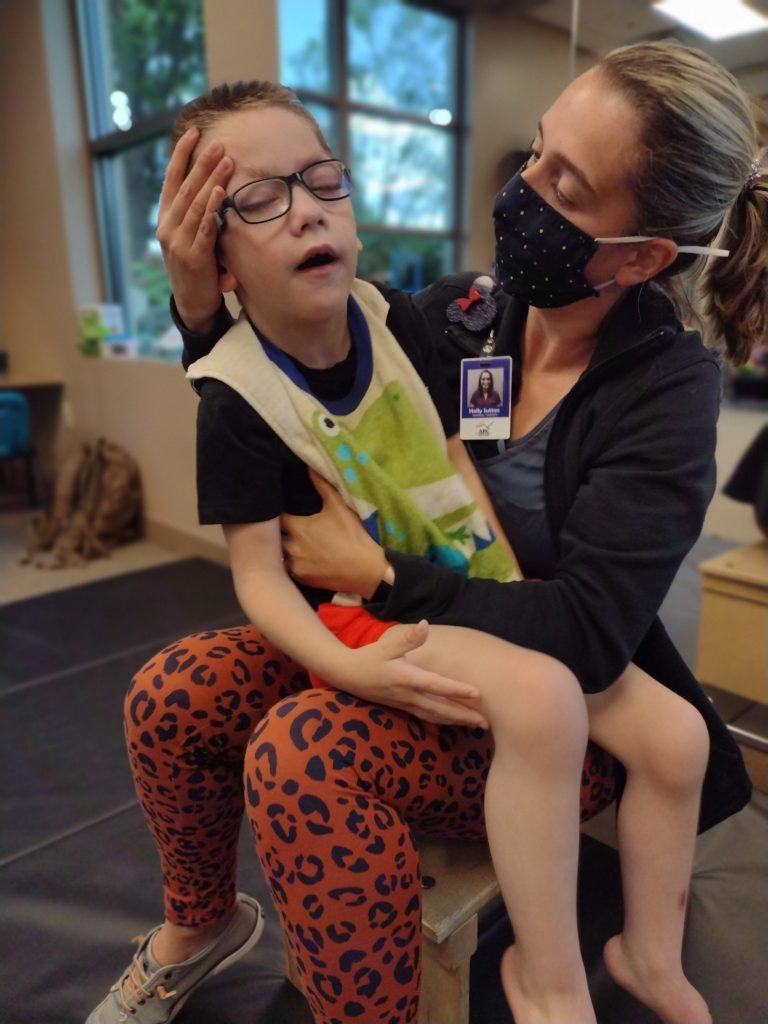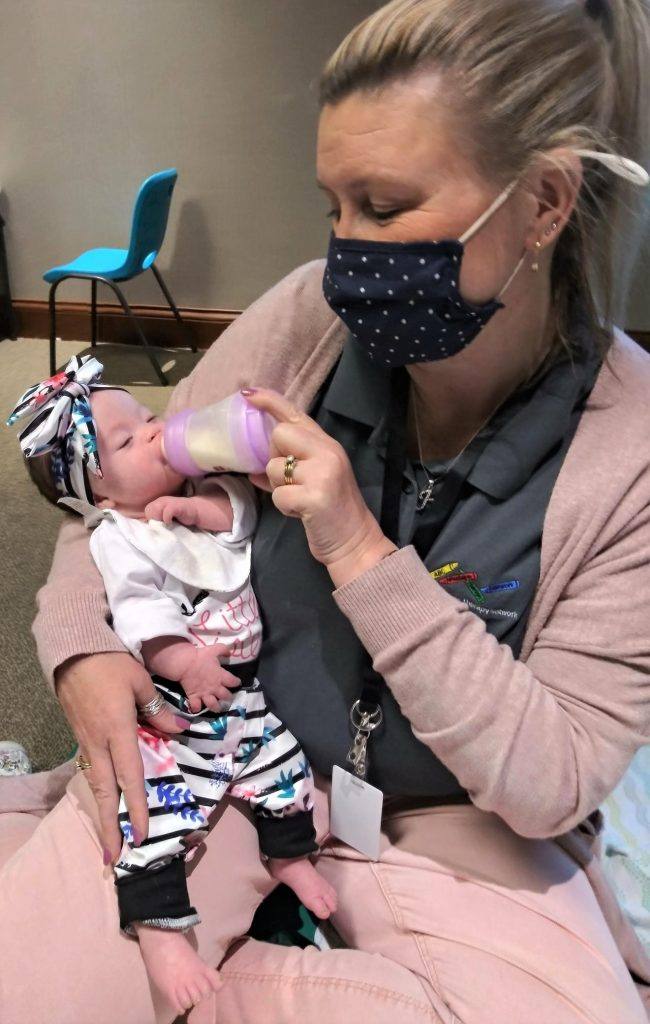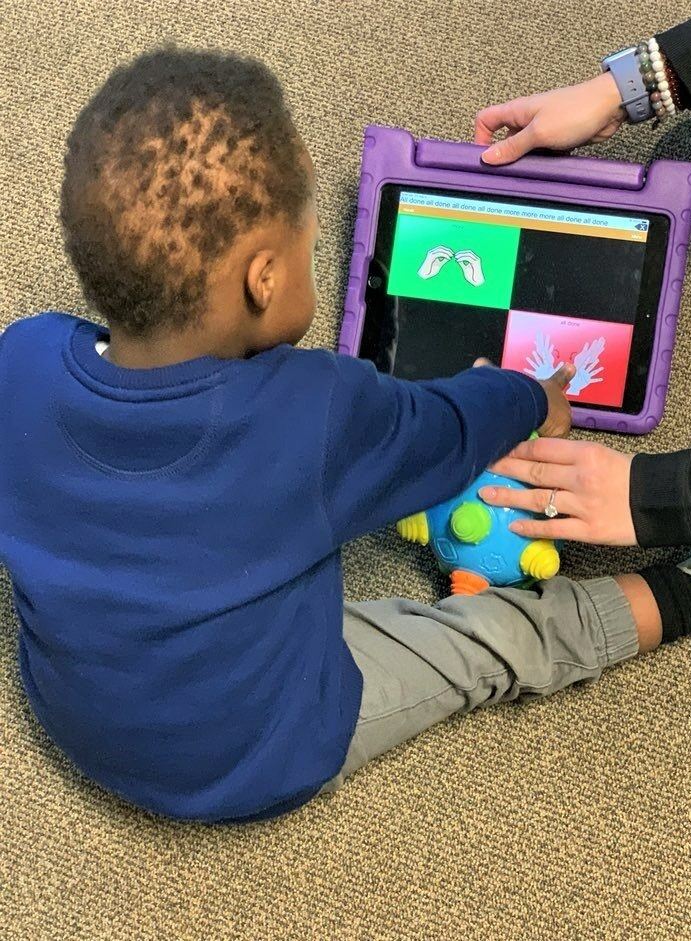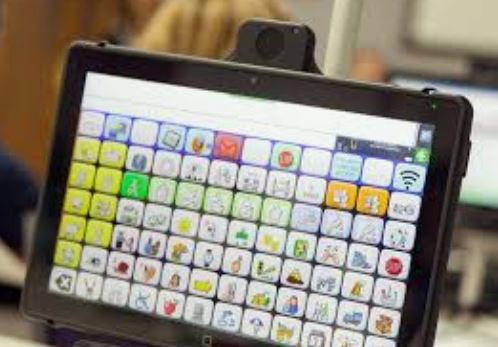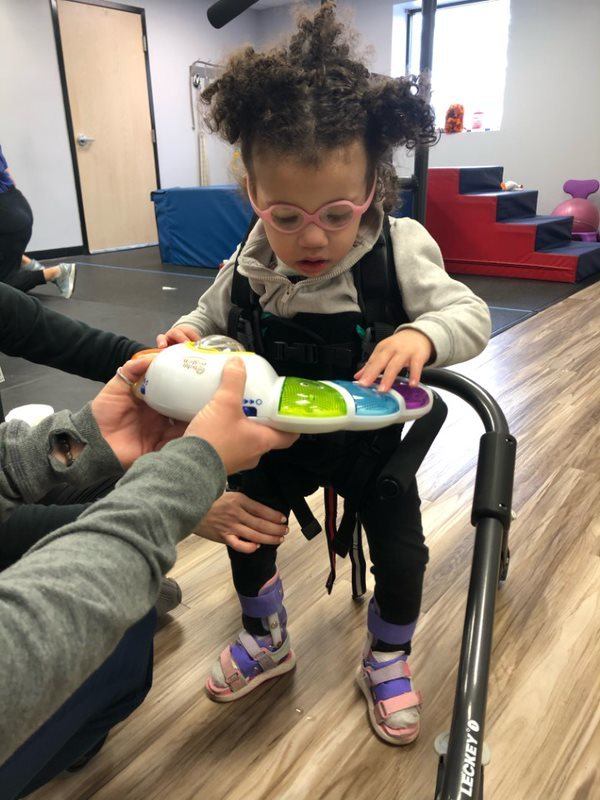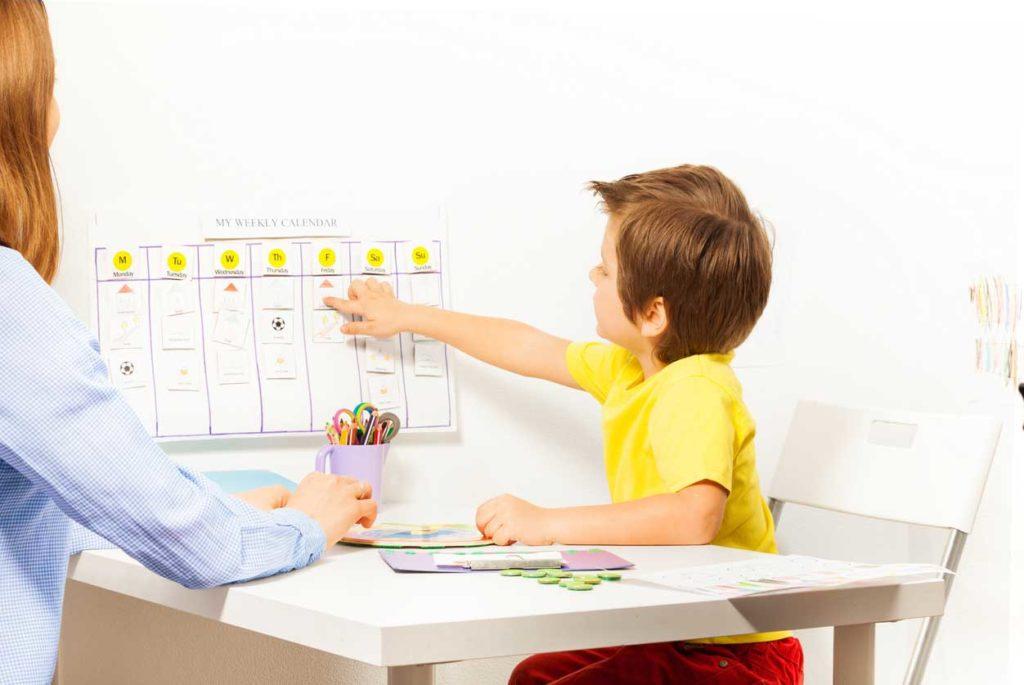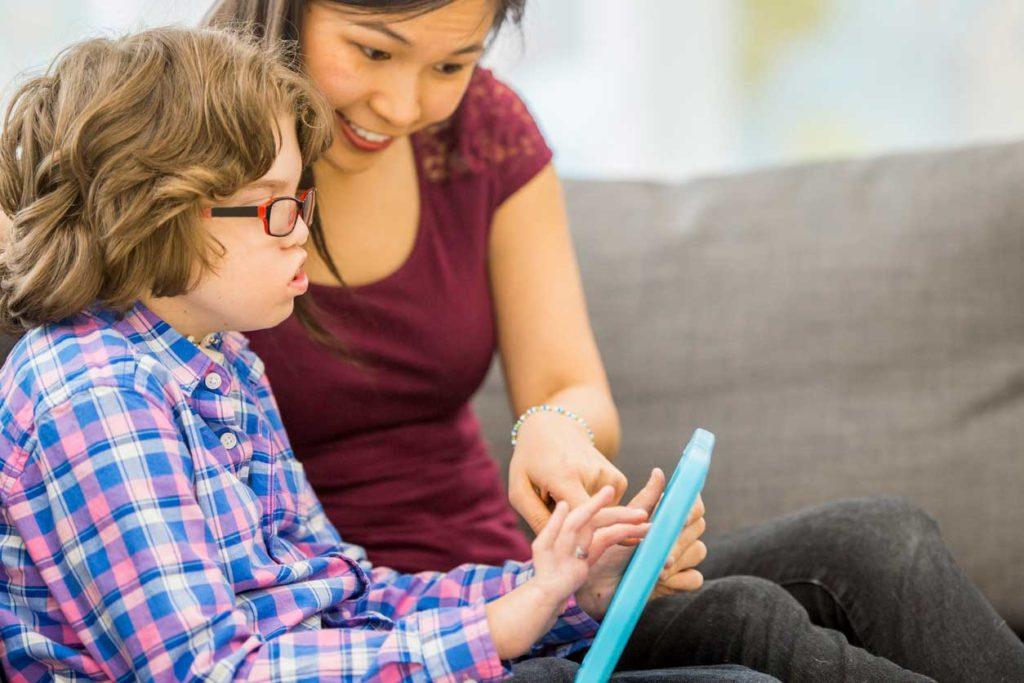The Medically Fragile Child
Medical Challenges
Often children that have multiple challenges start life with medical challenges. These medical challenges are handled first while trying to minimize future challenges that may be caused by these medical difficulties.
It is important that whenever your child is medically stable to also pay attention to external issues that might help your child in the future. For example, positioning, noises and social interaction to name a few.
We like to work very closely with your child’s other health care providers to create the best plan of care to maximize their well being
Developmental Checklist
Is your child meeting their developmental milestones?
Physical
Positioning
Be sure your child is positioned equally on his/her belly, back and each side if medically stable to do so. This encourages the rounded head shape you are striving to maintain as well as encourages development.
Tolerating tummy time is important for sensory development like vision, vestibular, hearing, proprioception as well as muscle strength and endurance. Your child will learn to look around from a different point of view while strengthening his extensor muscles.
You can also hold your child belly to belly with you so your infant can feel and hear your heartbeat, smell your smell and hear your voice. Encourage your child to lift their head and look at you to strengthen muscles in their neck, back and arms. Tummy time does not look the same for all kids- some children need to be held or propped on a ball or positioning pillow to prevent issues with their medical devices.
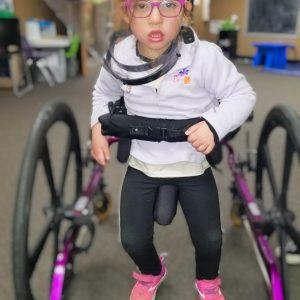
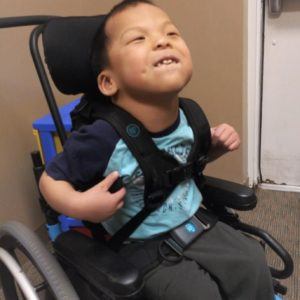
Development Tips
Swaddling your child in a blanket gives deep pressure and comfort. This tightly wrapped blanket helps your child learn about where his own body is. This is called proprioception.
As your child gets older and more medically stable, we want to continue to challenge their next developmental steps. The mindset should always be about “what can my child do?” and cheering your child to each next step.
Do NOT spend time worrying about skills your child does NOT have. Celebrate each small gain as a win! Be your child’s best cheerleader! Children take cues from parents. Show your child they should strive to be the best version of their self!
Equipment Needs
You may need to explore external positioning devices to assist with positioning your child.
Your therapist will help you decide what is the best devices to help your child sit, stand or walk. It is important for social and emotional development for children to be able to be at eye level with their peers, whether that be in a special seat, stander, or gait trainer.
Your therapist will help you through this process. When is based on your child’s development, strength and endurance.
Your insurance may pay for the equipment and your therapist will help you with this process.
Learning
- Children begin learning in the womb. Do not underestimate - every moment is a teaching moment for your child.
- Minimize the use of your phone when you are interacting with your child.
- Talk to your child as much as you can.
- Name everything in their environment to help them to gain new words.
- You will find that your child’s receptive language -that which they understand – is MUCH higher than their expressive language – that which they can say.
- Talk to your child using words at the age level that you think they understand. This will help your child process information at that age level and not too young or too old.
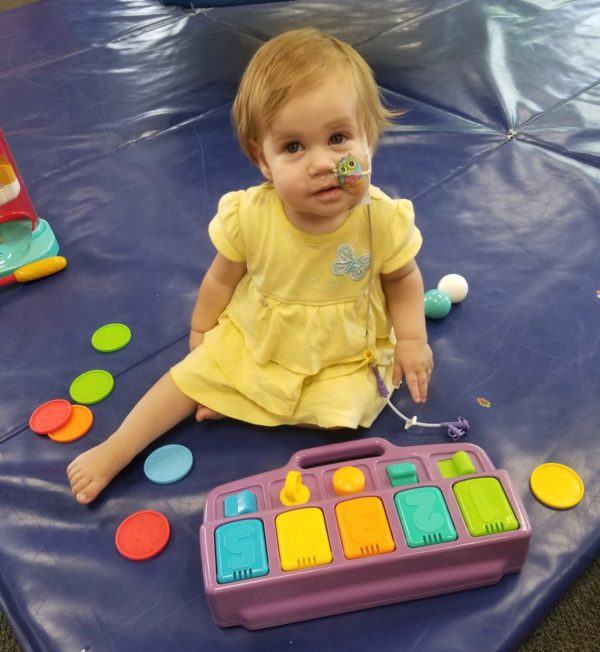
- Read books to your child as much as you can. Many concepts are taught through books like words, if/then concepts, questions like Who, What, When and Where, and so much more.
- Be the voice for your child. If your child is crying, say “are you sad?” If your child is smiling, say “I see that you are happy!” Be your child’s voice until they have one of their own!
- Your child will learn new things every day. Be sure to look for each new win and celebrate with your child! Every victory no matter how small is still a victory!
Social and Emotional Needs
Every child wants to be loved, snuggled, talked to and cared for. Every child wants friends. Their friendships may look different but they are still friends. Be sure to introduce your child to other children and encourage other children to wave to your child.
Other children may be curious about your child and their equipment or different abilities and their parents may not know how to best answer these questions. Children love to understand their similarities and differences; you can be proactive and encourage healthy discussion by saying things like, “I see that you both have curly hair and beautiful smiles! Johnny uses this wheelchair to help him get around just like you might need help with tying your shoes or riding your bike.”
Children crave structure and discipline. Do your best to treat your child as you would if they did not have the challenges they have. By that I mean, do not be afraid to correct your child if they throw their toy or act out. Your child needs to learn right and wrong like every other child.
Take the time to teach your child social skills like:
- Waving hi / bye
- Giving kisses and hugs
- Nodding “yes” and shaking head “no”
- Turn taking
- Playing alone
- Playing with others
- Sharing
- Separating from parents
- Flexibility with routines or change
- Trying new things
- Does not always need to get attention
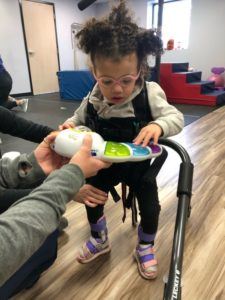
Communication
Learning to communicate wants and needs can be quite a challenge and frustrating for both you and your child. Always be a model for your child. If you consistently show your child how to do something they are more likely to be able to learn the skill. Work with your child to use a smile or a frown to answer yes or no. Progress to using your head to nod “yes” or shake your head “no”.
Self Care
It is important for your child to be able to help take care of their own needs as much as possible. This includes feeding, dressing, bathing, and toileting. Allow your child to help with these tasks in any way that they can. You can start by holding on top of their hand while completing daily activities such as brushing teeth, bringing a spoon to their mouth, or pulling on their socks. An occupational therapist can give suggestions of strategies for helping your child to become more independent with these tasks or to recommend equipment that may make these tasks easier for you and your child.
Augmentative and Alternative Communication Devices
Some children get quite frustrated when they know what they want to say but cannot say it. Using different forms of communication like sign language, picture/visual schedules or even voice generated devices can decrease a child’s frustration and allow the verbal communication to develop. A speech therapist will help to determine if a device is appropriate for your child and help you with the process of insurance coverage.
Milestone Moment
These communication devices also allow the child to get their wants and needs across developing independence. One more thing to celebrate!
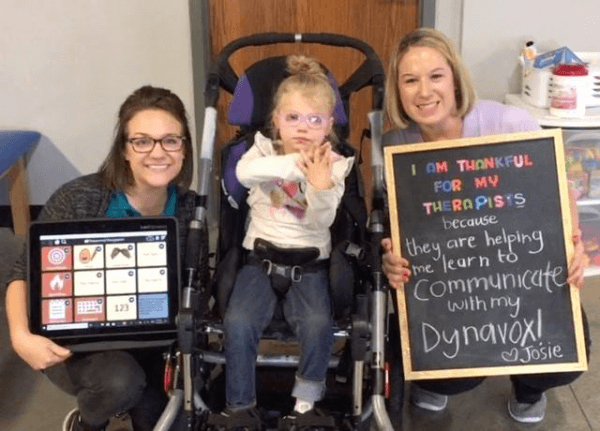
 Skip to content
Skip to content
